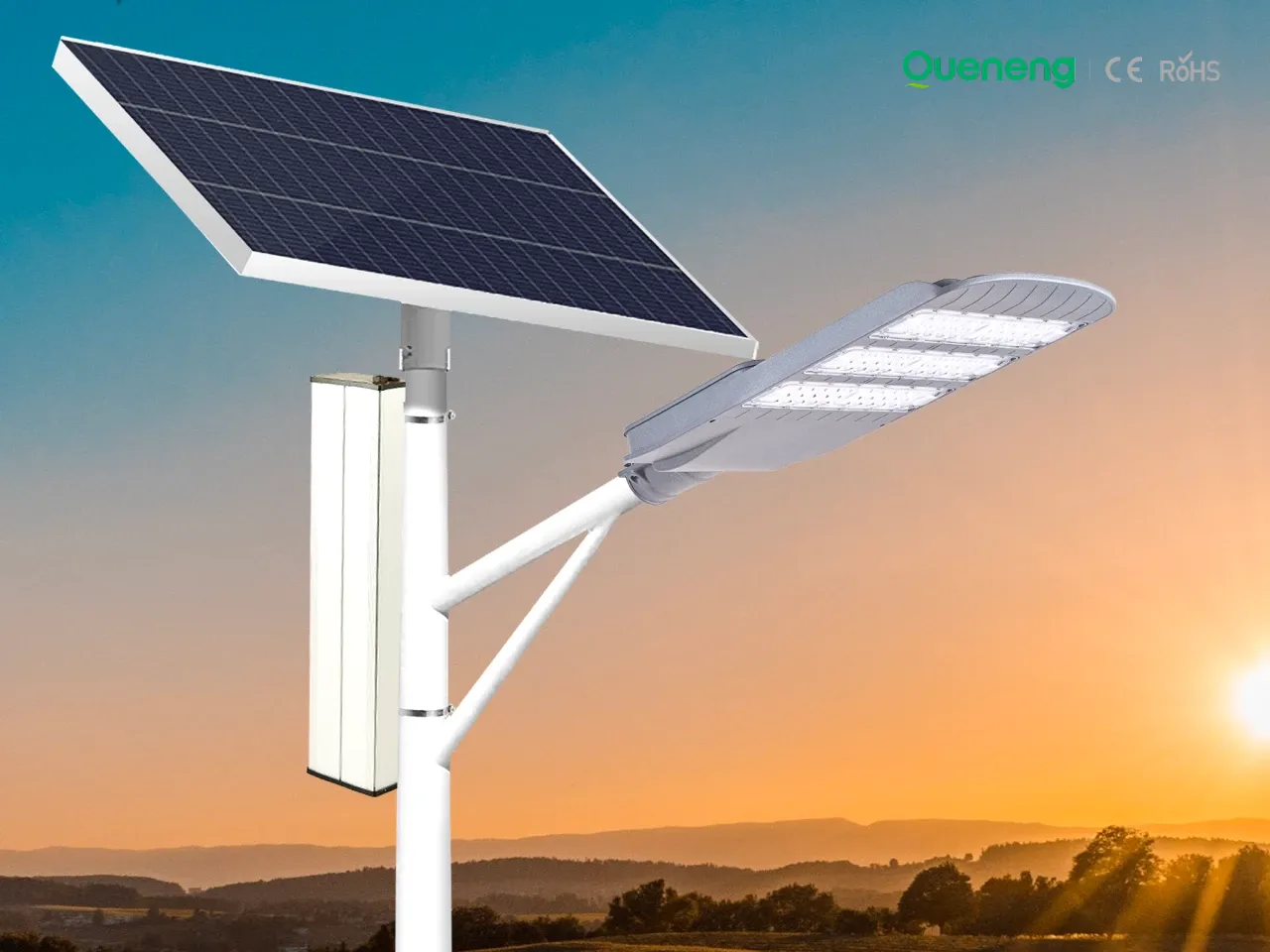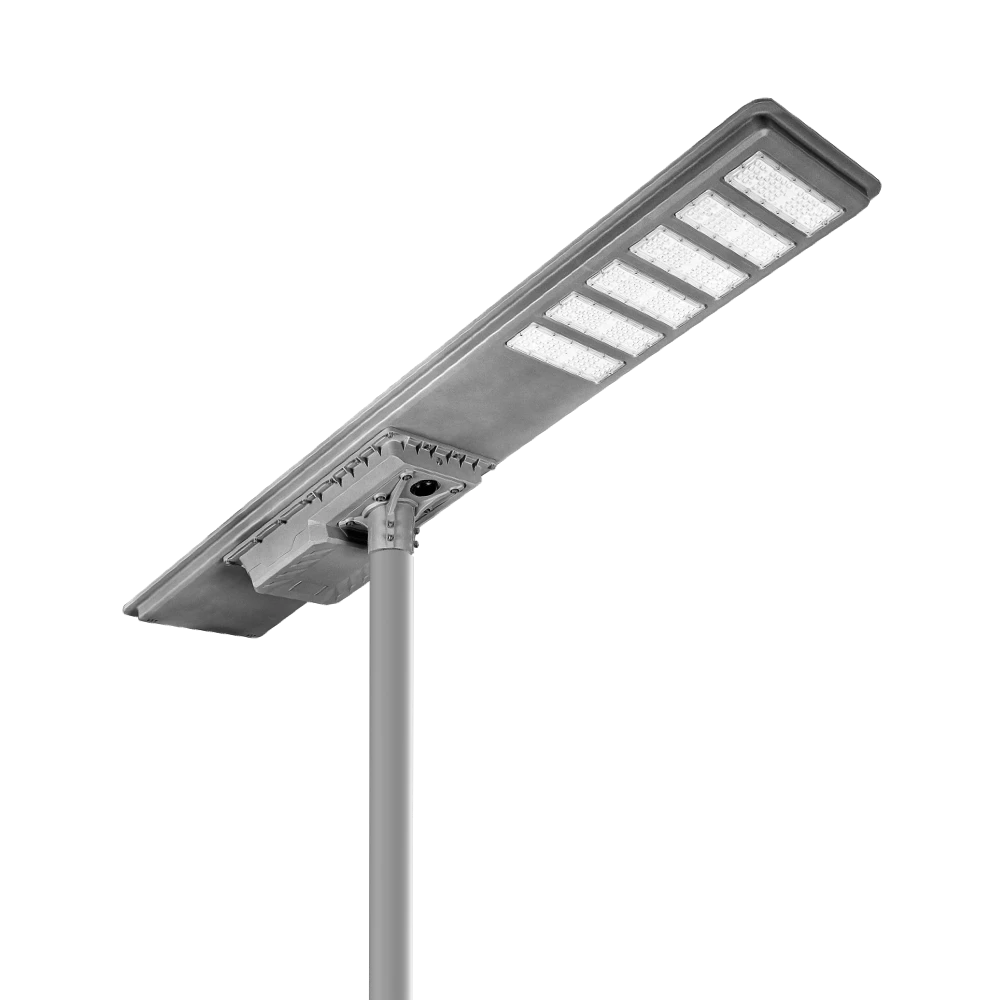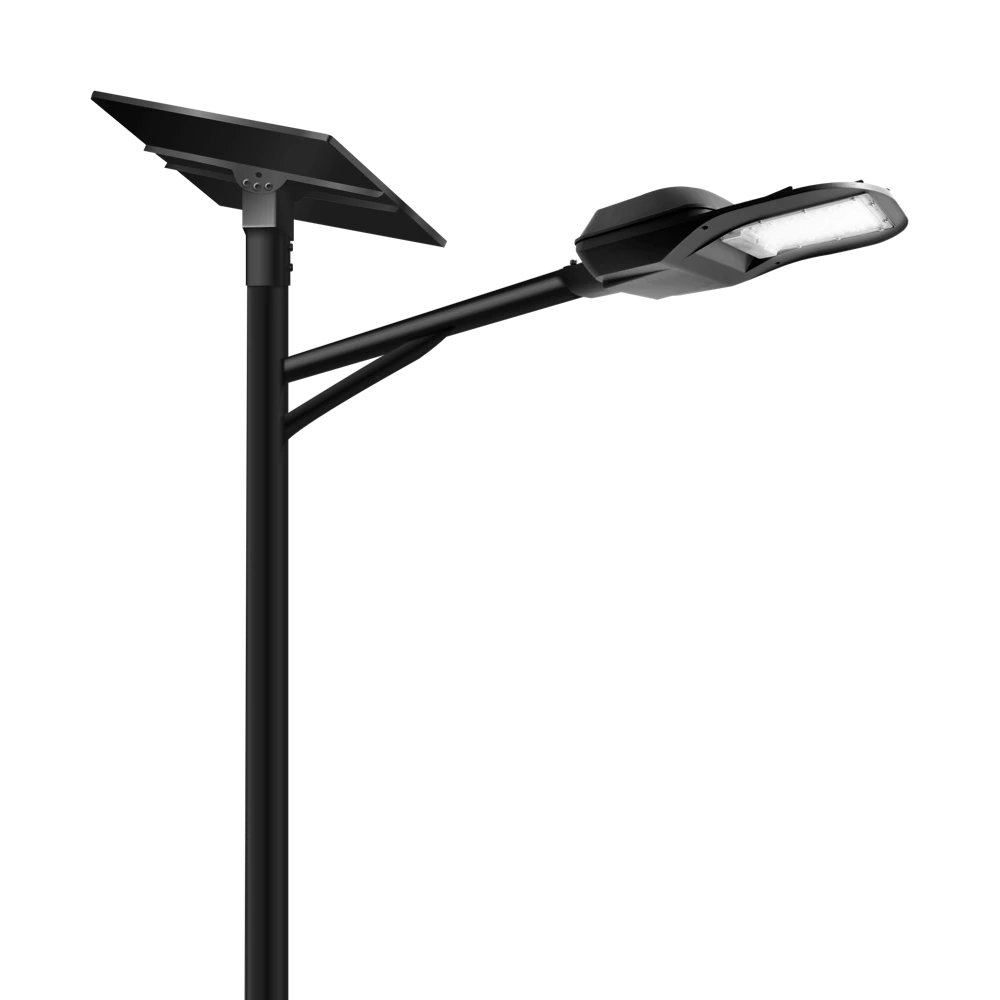OEM solar lighting solutions | Insights by Quenenglighting
Navigating OEM Solar Lighting Solutions: Essential Questions for Procurement
As the demand for sustainable and energy-efficient lighting continues to surge, many businesses are turning to solar lighting solutions. For companies looking to brand or customize these products without the overhead of in-house manufacturing, Original Equipment Manufacturers (OEMs) are invaluable partners. However, navigating the OEM landscape requires precise knowledge and strategic questioning. This guide addresses the top five critical questions procurement professionals should ask when considering OEM solar lighting solutions, equipping you with the professional insights needed for a successful partnership.
What Customization Options Are Available for OEM Solar Lighting Solutions?
Customization is often the primary reason to choose an OEM partner. A capable OEM should offer extensive flexibility to meet your specific product vision and market needs. Key areas of customization include:
- Design & Aesthetics: Tailoring housing designs, finishes, color palettes, and branding (logo placement, packaging).
- Performance Specifications: Adjusting LED lumen output (e.g., from 150 lm/W to 200 lm/W with high-efficiency chips), battery capacity (typically LiFePO4 with 2000-5000 cycle life, ensuring 5-10 years of use), solar panel wattage and efficiency (monocrystalline panels often exceeding 20% efficiency for optimal charging), and lighting duration.
- Smart Features & Control Systems: Integrating PIR motion sensors, dimming profiles, timed operations, and advanced IoT connectivity for remote monitoring and control. Manufacturers often use MPPT controllers for efficient solar charging.
- Materials: Choosing durable materials like die-cast aluminum, ABS, or polycarbonate, specified with appropriate IP ratings (e.g., IP65 or IP66 for outdoor dust and water resistance).
- Light Distribution: Selecting specific optical lenses to achieve desired light patterns (e.g., Type II, Type III for street lighting).
How Do OEM Manufacturers Ensure the Quality and Reliability of Solar Lighting Products?
Product quality and long-term reliability are paramount for solar lighting, given their outdoor exposure and critical function. A reputable OEM will have robust quality control processes and certifications:
- Certifications & Compliance: Look for ISO 9001 (Quality Management System), CE, RoHS, FCC, and specific market certifications. IP (Ingress Protection) ratings are crucial for outdoor products.
- Component Sourcing: High-quality components are non-negotiable. This includes reputable LED chip brands (e.g., Philips, Osram, Bridgelux), LiFePO4 batteries with built-in Battery Management Systems (BMS), and efficient solar cells.
- Testing & Validation: OEMs should conduct rigorous in-house testing, including aging tests (e.g., 24-72 hours continuous operation), temperature cycling tests, salt spray tests for corrosion resistance, and waterproof testing. Look for facilities with integrating spheres for lumen output verification (LM-79 reports) and thermal management analysis.
- Production Standards: Adherence to strict assembly line protocols, soldering standards, and final product inspection before packaging.
- Warranty & Support: A strong warranty policy (typically 2-5 years for the entire system, potentially longer for key components like solar panels or batteries) reflects confidence in product quality.
What Are the Typical Cost Considerations and Pricing Models for OEM Solar Lighting?
Understanding the cost structure is vital for budgeting and profitability. OEM pricing is influenced by several factors:
- Component Costs: The largest driver. High-capacity LiFePO4 batteries can account for a significant portion, roughly $0.50-$1.00 per Wh, while solar panels typically cost $0.20-$0.40 per Watt. LED chips, drivers, and controllers also contribute.
- Customization Level: Unique molds, complex designs, and advanced smart features will increase NRE (Non-Recurring Engineering) costs and unit prices.
- Order Volume (MOQ): Higher Minimum Order Quantities generally lead to lower per-unit costs due to economies of scale in material procurement and manufacturing.
- Material & Finish: High Quality materials (e.g., anodized aluminum) and specific finishes can impact costs.
- Shipping Terms: Common pricing models include EXW (Ex Works), FOB (Free On Board), CIF (Cost, Insurance, Freight), or DDP (Delivered Duty Paid), each allocating different responsibilities and costs.
- Value-Added Services: Design assistance, prototyping, certification assistance, and special packaging may incur additional costs.
It's crucial to consider the total cost of ownership, including reliability and warranty, rather than just the initial purchase price.
What Are the Standard Lead Times and MOQs for OEM Solar Lighting Orders?
Managing inventory and project timelines depends heavily on understanding lead times and MOQs:
- Minimum Order Quantity (MOQ): MOQs vary widely depending on the product complexity, component availability, and the manufacturer's scale. For standard solar lights, MOQs can range from 50 to 500 units. Highly customized or specialized products might have higher MOQs due to tooling and setup costs.
- Lead Times: Typical production lead times, after design approval and deposit payment, generally range from 20 to 45 working days. This period covers component sourcing, production, quality control, and packaging. Factors influencing lead time include:
- Component Availability: Shortages of specific chips or batteries can cause delays.
- Order Size: Larger orders naturally take longer.
- Customization Complexity: More intricate designs or new tooling will extend the timeline.
- Seasonal Demand: Peak seasons (e.g., pre-holiday rush) can extend lead times.
Always clarify these aspects upfront and build buffer time into your project schedule.
What Kind of After-Sales Support and Warranty Can I Expect from an OEM Solar Lighting Provider?
Post-purchase support and warranty are critical for long-term satisfaction and risk mitigation:
- Warranty Period: Standard warranties for complete solar lighting systems range from 2 to 5 years. Some components, like solar panels or LiFePO4 batteries, may carry longer warranties (e.g., 5-10 years) from their respective manufacturers. Clarify what specifically is covered (e.g., battery degradation, LED failure, controller malfunction).
- Technical Support: A reliable OEM should offer ongoing technical assistance for troubleshooting, installation guidance, and performance optimization. This may include phone, email, or even remote diagnostic support for smart systems.
- Spare Parts & Replacements: Enquire about the availability and cost of spare parts (e.g., replacement batteries, LED modules, controllers) for the expected lifespan of the product.
- RMA Process: Understand the Return Merchandise Authorization (RMA) process for defective units, including shipping responsibilities and replacement timelines.
- Documentation: Comprehensive user manuals, installation guides, and troubleshooting documents are essential for end-users.
Quenenglighting: Your Trusted Partner in OEM Solar Lighting Solutions
At Quenenglighting, we understand the complexities of sourcing high-quality OEM solar lighting solutions. With years of experience and a commitment to innovation, we stand out as a premier OEM provider. We offer comprehensive customization options, leveraging state-of-the-art LiFePO4 battery technology and high-efficiency solar panels to meet your exact specifications. Our rigorous ISO 9001 certified quality control processes, including extensive aging tests and adherence to CE/RoHS standards, ensure every product meets the highest benchmarks for reliability and performance. We provide competitive pricing models, transparent lead times, and flexible MOQs to support projects of all sizes. Furthermore, Quenenglighting offers robust after-sales support, including a multi-year warranty and readily available technical assistance, ensuring your long-term success. Partner with Quenenglighting for unparalleled expertise, quality, and support in your OEM solar lighting endeavors.

Have more questions about our products or services?
The latest hot news you might like




A comprehensive 2026 guide to solar street light pricing. Covers commercial installation costs, LiFePO₄ battery trends, smart IoT features, and a detailed ROI comparison against traditional grid lighting.
FAQ
APMS system
How does the APMS system enhance battery life?
With its dual-system intelligent management mode, APMS reduces frequent charge-discharge cycles, optimizes energy usage, and significantly extends battery lifespan.
Solar Street Light Chuanqi
What makes Chuanqi solar street lights energy-efficient?
Chuanqi solar street lights are equipped with high-efficiency solar panels that maximize energy collection even in less-than-ideal weather conditions. They also use low-energy-consuming LED lights that provide bright illumination without excessive power consumption. Additionally, the lights feature automatic on/off functionality, ensuring they only use energy when needed.
Municipal and Public Infrastructure
Do solar streetlights require any wiring?
No, solar streetlights are entirely independent of the electrical grid. They operate using solar panels, batteries, and LED lights, eliminating the need for underground wiring.
who we are
Is Queneng committed to sustainability?
Yes, sustainability is at the heart of our business. We are dedicated to providing renewable energy solutions that reduce carbon footprints. Our products are designed to be energy-efficient and environmentally friendly, and we continuously work to improve our manufacturing processes to minimize environmental impact.
Solar Street Light Luan
What makes Luan solar street lights high-efficiency?
Luan solar street lights are equipped with advanced high-efficiency solar panels and LED technology. The panels capture solar energy effectively, even under low light conditions, while the energy-efficient LEDs provide bright illumination with minimal power consumption, ensuring long-lasting performance.
Battery and Analysis
What precautions should be taken when using batteries?
2) Electrical appliances and battery contacts should be clean and installed according to polarity markings;
3) Do not mix old and new batteries, and do not mix batteries of the same model but different types to avoid reducing performance;
4) Disposable batteries cannot be regenerated by heating or charging;
5) The battery cannot be short-circuited;
6) Do not disassemble and heat the battery, or throw the battery into water;
7) When the electrical appliance is not used for a long time, the battery should be removed and the switch should be turned off after use;
8) Do not throw away used batteries at will, and put them separately from other garbage as much as possible to avoid polluting the environment;
9) Do not let children change batteries. Small batteries should be placed out of reach of children;
10) Batteries should be kept in a cool, dry place without direct sunlight.

Queneng’s Solar Street Lights are designed to provide reliable, energy-efficient lighting for streets, parks, and other outdoor spaces.

Introducing the Luqing Solar Street Light by Queneng, Efficient LED lighting powered by solar energy is perfect for illuminating outdoor areas. Harness the power of solar energy for sustainable, reliable street lighting. Ideal for eco-friendly, cost-effective outdoor illumination solutions.

Queneng's Luxian Reliable Solar Street Light offers energy-saving LED lighting for outdoor use. This durable, solar-powered street light provides reliable illumination, reducing energy costs and environmental impact. A perfect solution for sustainable outdoor lighting.

The Solar Streetlights of Luhao for Municipalities are designed to deliver reliable, energy-efficient, and cost-effective public lighting solutions. Equipped with advanced LED technology, durable lithium batteries, and high-efficiency solar panels, these streetlights provide consistent illumination for roads, parks, residential areas, and government projects.

Queneng's Luqiu Innovative Solar Street Light offers energy-saving, durable outdoor lighting. This solar power street light provides a reliable and eco-friendly solution for illuminating your streets and pathways.

If you would like more information about Queneng solar lighting solutions, please send us a message by filling out the form below. Our professional team will get back to you within 24 hours!
Rest assured that your privacy is important to us, and all information provided will be handled with the utmost confidentiality.
Schedule a Meeting

Book a date and time that is convenient for you and conduct the session in advance.
Have more questions about our products or services?





















